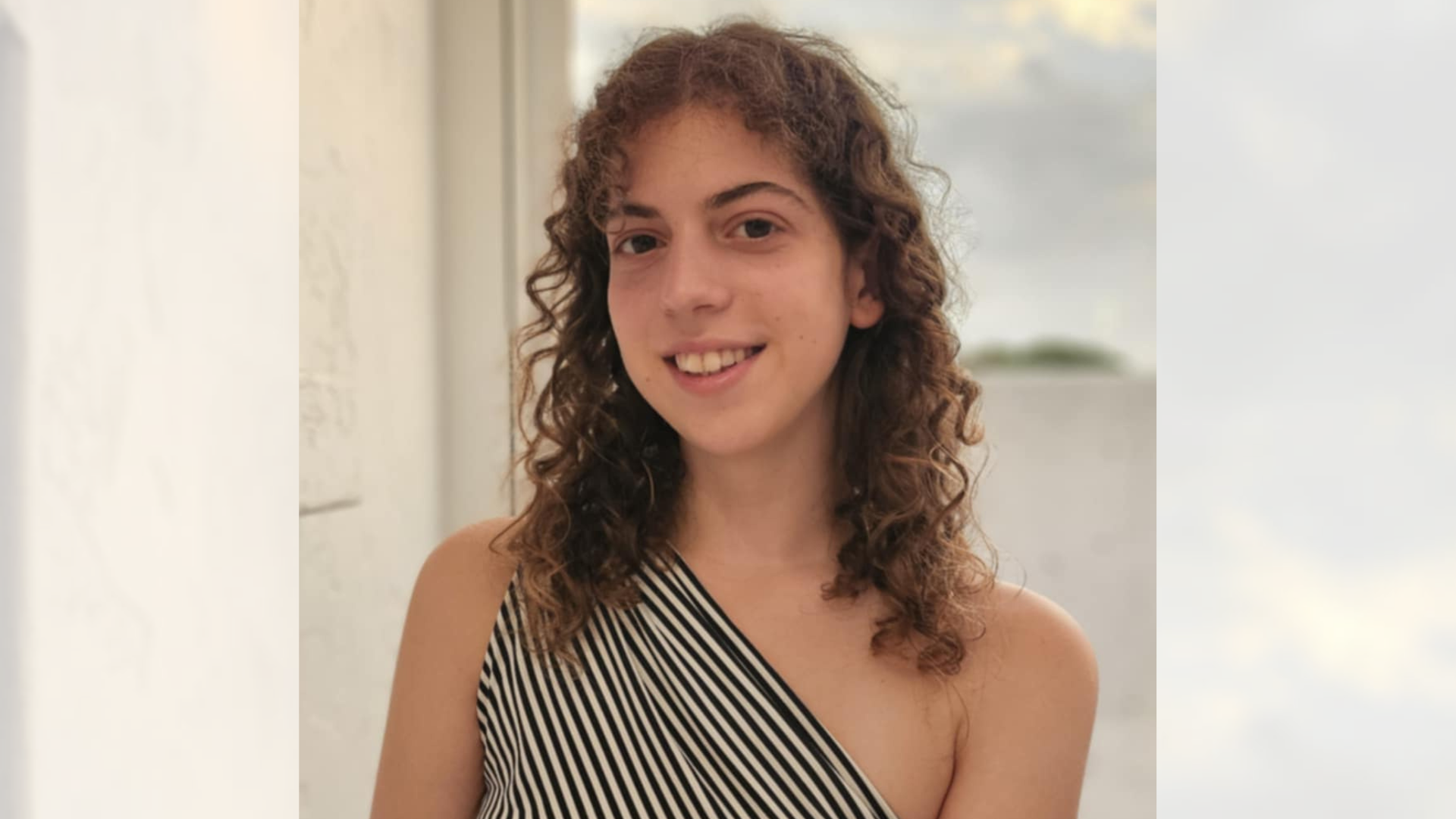At just 20 years old, Zoe Haritopoulou-Sinanidou is already leaving her mark on the world of biomedical science — and beyond. Named the inaugural Woman to Watch at this year’s Greek Herald Woman of the Year Awards, Zoe shares the honour with her sister Melina, reflecting not only their individual achievements but the strength of their shared journey.
Currently completing her Honours year at the prestigious Doherty Institute’s Kent Lab, Zoe is helping develop a cutting-edge nanoparticle vaccine for influenza and COVID-19. But her story is just as much about resilience and cultural pride as it is about scientific innovation.
From leaving Athens to move to rural Australia at 13, to navigating the challenges of being a young woman and migrant in STEM, Zoe has turned every obstacle into an opportunity.
In this exclusive interview, she opens up about her Greek heritage, her inspirations — particularly the powerful women in her family — and her mission to foster respectful, inclusive environments in science. Warm, grounded and forward-thinking, Zoe embodies the future of STEM: diverse, driven and deeply human.
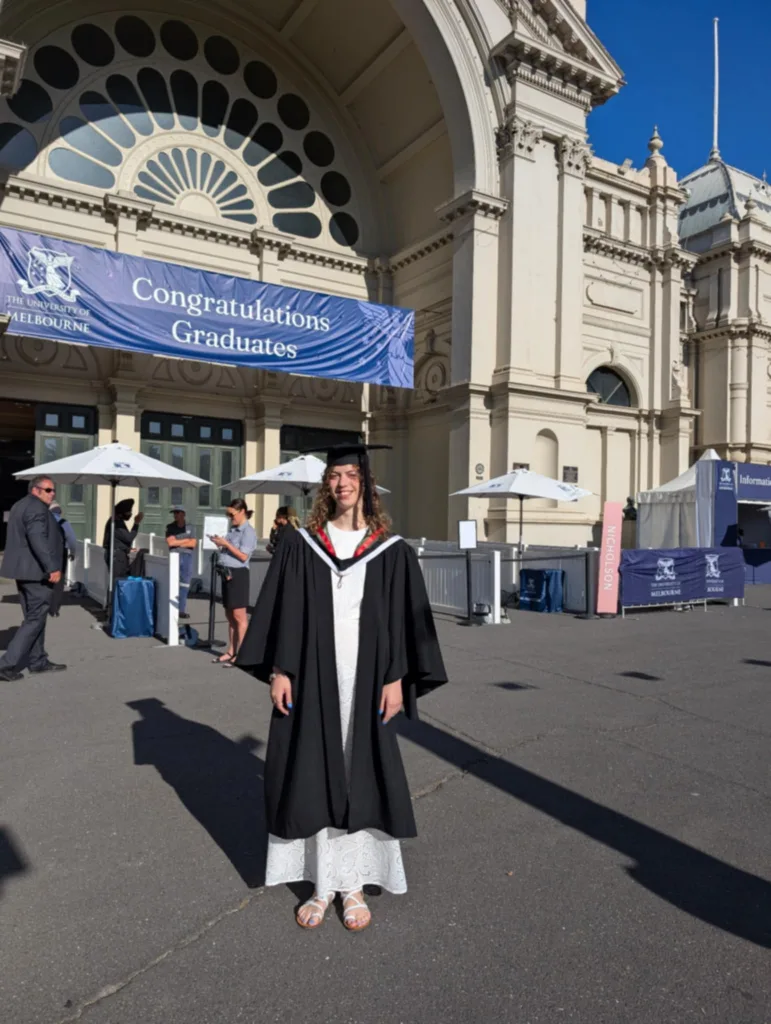
Tell us a bit about yourself.
I am a biomed graduate doing my honours year at the Kent Lab of the Doherty Institute, generating a nanoparticle vaccine for influenza and COVID.
I came to rural Australia after finishing Year 7 in Greece. Now in Melbourne, I enjoy all the city has to offer. At uni, I am part of the committee of the Italian club, MUISC, where we share Italian culture.
Coming from Athens and moving to Australia in 2017 must have been a significant transition. How has your Greek heritage shaped your journey in STEM, and how do you stay connected to your roots while pursuing your career?
Moving from Athens, a bustling city, to rural New South Wales in 2017 was a huge shift. There were no Greeks there and this forced me to adapt to the outback lifestyle. My move to Melbourne made it easier to find more opportunities in science.
Growing up in Athens, I would go to the Eugenides Foundation/Planetarium, the Hellenic World and so many other science venues. At school we were taught from a young age about Archimedes and Pythagoras. Our school would also send me to mathematics competitions and robotics events, and I was a member of a chess club and attended weekend competitions. Here in Australia, I enjoyed the Australian education system and it suited my way of learning. Whether in Greece or Australia, maths and science were passions of mine because I had a knack for them.
My Greek heritage has shaped my journey in STEM because the language of science uses Greek words and even though I couldn’t speak English as well as my classmates when I first arrived, I could still understand these subjects. This was great for my self-esteem.
Regarding my Greek heritage, it is simply a natural part of who I am. I grew up there and have friends in Athens that I catch up with regularly. I also speak Greek at home, visit my dad in Athens, enjoy cuisine in Oakleigh, enjoy NUGAS and Pallaconian Brotherhood events, was an assistant teacher at the Greek Community schools, but overall I embrace the multicultural lifestyle Melbourne offers.
I am also a member of many other youth groups. I really appreciate living in a country where multiculturalism is embraced.
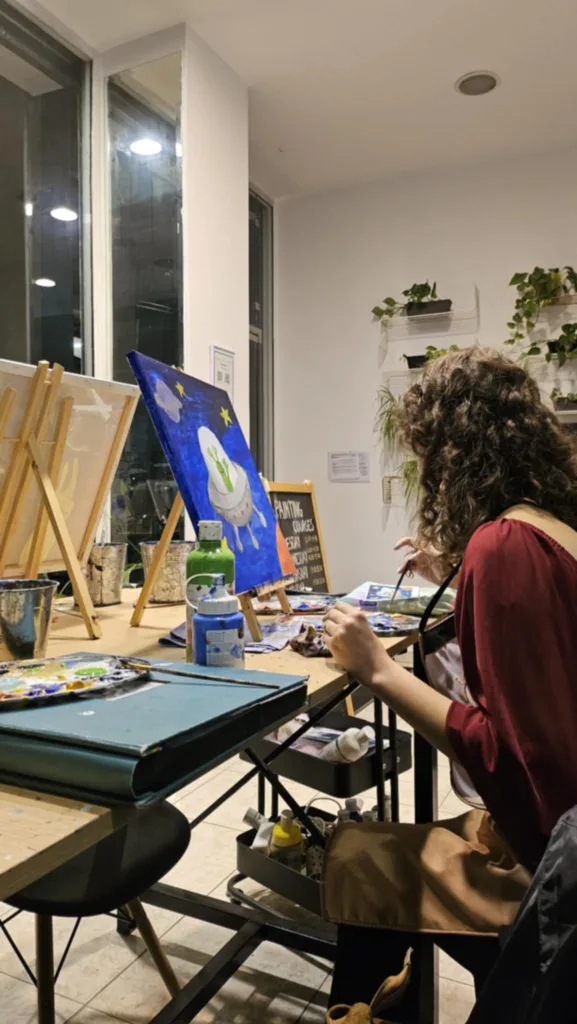
You’ve spoken about the influence of your grandmother and mother, as well as mentors. Can you share more about how they have shaped your path in science and leadership?
I am lucky to have been inspired by strong women. First and foremost, my sister Melina, whom I share the Woman to Watch Award with. As young girls she would share her knowledge and wonder in the world, whether this be looking at bugs through a magnifying glass or just talking about the Big Bang Theory and coming up with crazy hypotheses.
My grandmother overcame obstacles on Imbros and pursued her dreams as a young teenager studying in Istanbul before heading on a scholarship to the prestigious Arsakeio Teachers Academy in Athens and then becoming a principal in Istanbul. She instilled in me the importance of an education. And my grandfather believed in her and was the type of man who respected gender equity, shared household duties, was an active listener and, frankly, I don’t remember him ever saying anything demeaning or degrading about gender roles or women – something unusual for his generation.
Naturally, with parents like that, my mother (The Greek Herald journalist Mary Sinanidis) was a powerful example of breaking gender stereotypes. As a sole breadwinner in a cut-throat industry like journalism, she worked tirelessly, juggling multiple jobs so my sister and I could pursue our dreams. Though she made it look effortless, I witnessed firsthand that this was not easy. I remember visiting her at one workplace and seeing verbal abuse and rampant bullying. This happened in progressive Australia in recent times — not in Greece, not in past decades. It helped me understand the effects that a person’s workplace can have on a person’s self-esteem and family. Her ability to overcome this abuse, to maintain her self-belief and passion regardless of it, and to ultimately succeed, taught me the importance of patience and perseverance. And I vowed to be very careful about the environments I choose to work in.
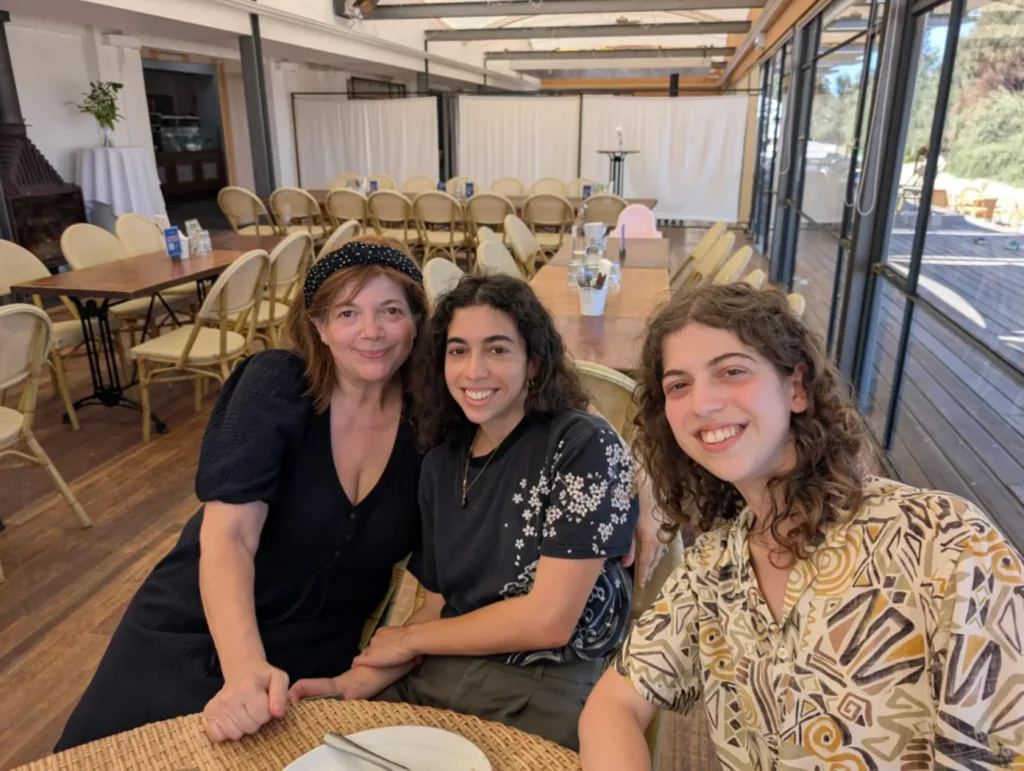
Finding mentors at the Kent Lab of the Doherty Institute was life-changing. They provide consistent support and training, fostering a positive and effective learning environment. Their respectful treatment of everyone contrasts sharply with some negative experiences others have shared with me. It is no secret that academia is brutal. I actually hesitated pursuing a science career due to these horror stories, but I am lucky that my lab has so far demonstrated that respectful environments do exist. My goal is to contribute to creating more such environments, where diversity is valued, and everyone feels safe to express themselves and perform their best work.
As a young woman excelling in STEM, what challenges have you faced in the field, and what changes would you like to see to make the industry more inclusive for women?
While I’ve been fortunate in some respects, I’ve encountered subtle yet persistent challenges as a young woman in STEM. The constant emphasis on the rarity of women in this field, and the surprise expressed at my mathematical abilities simply because of my gender, creates a sense of unease. It’s discouraging to feel like your competence is questioned based on stereotypes. At school I had a teacher who told me that I was “great for a girl”, and I found this off putting.
Beyond gender, I’ve also experienced instances where my race seemed to be a factor. For example, a university academic advisor, despite my Australian citizenship and academic performance, suggested I pursue opportunities as a ‘diversity hire’ or relocate to Greece. This felt dismissive and unprofessional, and I discontinued our meetings.
To create a more inclusive STEM industry, I believe we need to address unconscious bias and shift the narrative away from highlighting the rarity of women in STEM and, instead, focus on celebrating their contributions.
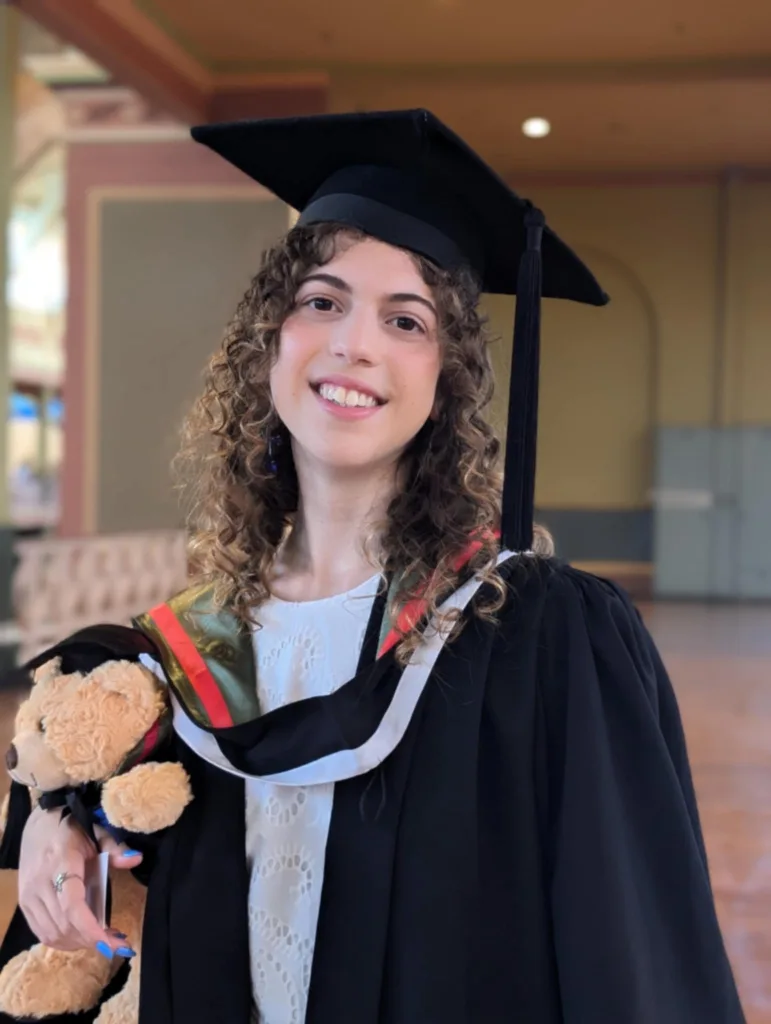
You’re already making waves in biomedical research at just 20. What are your long-term career goals, and how do you hope to contribute to the future of science and healthcare?
My immediate goal is to pursue a PhD, solidifying my research skills and deepening my expertise in biomedical science. While my current research focuses on virology, I’m eager to broaden my scope to tackle other critical health challenges.
Specifically, I’m passionate about contributing to research on issues I have seen my own family struggle with first-hand: multiple sclerosis, cancer, and Alzheimer’s disease. These illnesses have personally impacted my life, because I have seen first-hand the profound challenges they present.
My long-term aspiration is to contribute meaningfully to the development of innovative treatments. Ultimately, I hope to play a role in shaping a future where scientific advancements lead to more effective and accessible healthcare for all.
Receiving the inaugural TGH Woman to Watch award is a remarkable achievement. How did it feel to be recognised, and what message do you hope to share with other young Greek Australian women?
Receiving the inaugural TGH Woman to Watch award is an incredible honour. It’s deeply motivating, and makes me determined to not only live up to the title but to exceed expectations. I feel an immense sense of gratitude and responsibility.
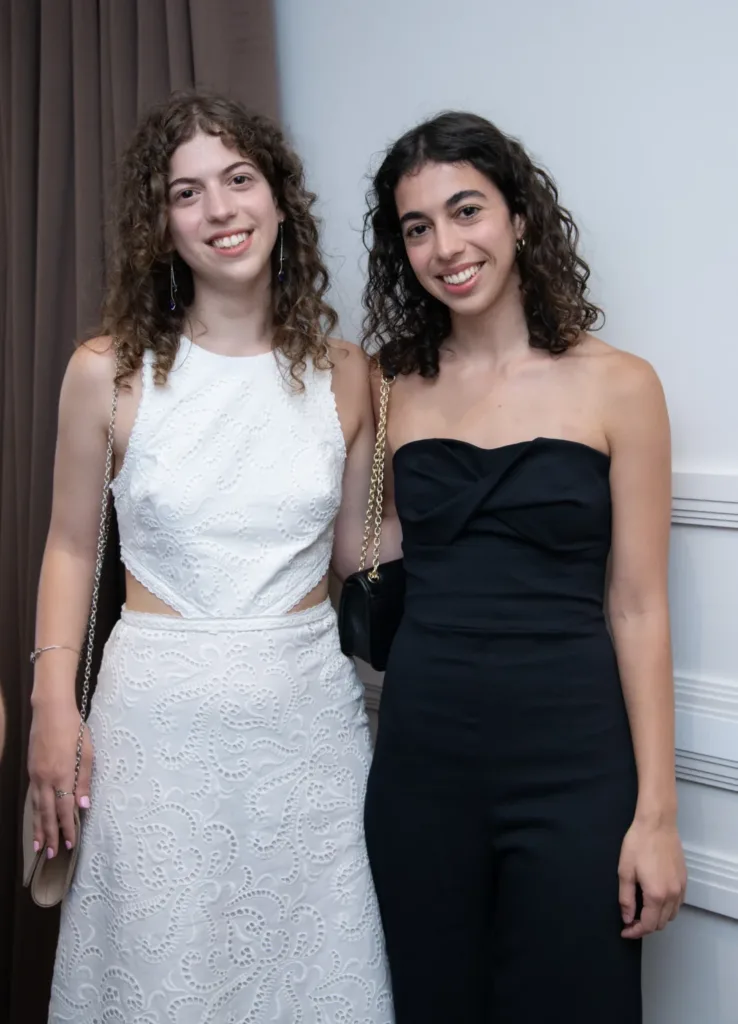
My message is not just for Greek Australian women, but for whoever needs to hear it. Whether you are a woman in science or a male childcare worker – believe in your potential, don’t be afraid to pursue your passions, even if someone tells you they are unconventional.
Surround yourself with supportive people who lift you up, and remember that collaboration can amplify your impact. We are capable of incredible things when we work together, and by this, I mean women supporting women, men supporting a fair workplace and room for all people regardless of their pronouns or race.
Whoever you are, don’t be afraid to be you, to share your voice, your ideas, break barriers and shine your light!
You and your sister Melina are both excelling in STEM and lifting each other up along the way. How has working alongside your sister influenced your journey, and do you see more collaborations in your future?
From a young age we had fun with science, and have many shared experiences. She was, and still is, the first person I turn to for advice (sorry mum) – whether it is about navigating a difficult research problem or personal problems.
Her work ethic is one of the best! Of course I would love to collaborate with her should the opportunity arise.
Is there anything else you’d like to say?
STEM is great, awards are wonderful, but what matters most in life is cultivating meaningful relationships with people that matter and practicing kindness and self-care.
